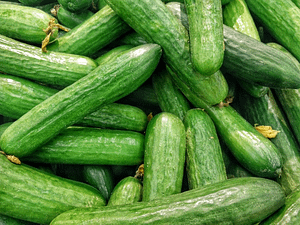
Apricot, a small golden orange fruit with velvety skin and juicy pulp, is a delicious and versatile fruit that has been enjoyed for thousands of years. Whether eaten fresh, dried, or used in various culinary creations, apricots have captivated taste buds and offered a unique flavor experience.
Introduction to Apricots
Apricots are the fruits that grow on apricot trees. These trees, scientifically known as Prunus armeniaca, are native to Central Asia, particularly the areas around the borders of China and Russia. With their distinct taste and appearance, apricots have become a beloved fruit worldwide.
The Unique Characteristics of Apricots
Apricots are known for their sweet yet slightly tangy flavor. Their velvety skin encases a soft and juicy flesh, which can vary in color from pale yellow to deep orange. Within the flesh lies a large seed, commonly referred to as a stone, which is not edible.
Apricots are not only delicious but also a rich source of essential nutrients. They are packed with vitamins A and C, fiber, and antioxidants, making them a healthy addition to any diet.
Apricot Cultivation and History
The cultivation of apricots dates back thousands of years. While their exact origins are uncertain, it is believed that apricots originated in Central Asia, where they were cultivated by ancient civilizations. Over time, apricot cultivation spread to other regions, including the Mediterranean, Europe, and North America.
Apricot trees thrive in temperate climates and require well-drained soil and plenty of sunlight. They are typically grown from seeds or grafted onto rootstocks to ensure optimal fruit production.
Apricots in Culinary Delights
Apricots are incredibly versatile in the kitchen and can be enjoyed in various forms. Whether eaten fresh, dried, or cooked into jams, jellies, desserts, or preserves, apricots add a burst of flavor to any dish.
When consumed fresh, apricots can be enjoyed on their own as a healthy snack or incorporated into salads, smoothies, or fruit tarts. Their natural sweetness pairs well with both savory and sweet ingredients, making them a versatile addition to many recipes.
Dried apricots are a popular choice for snacking and can be found in trail mixes, granola bars, and baked goods. Their concentrated flavor and chewy texture make them a convenient and nutritious option for on-the-go snacking.
In addition to their culinary uses, apricots are also used in the production of apricot kernel oil, which is extracted from the seeds. This oil is commonly used in skincare products due to its moisturizing and nourishing properties.
The Health Benefits of Apricots
Apricots offer numerous health benefits due to their rich nutritional profile. Here are some of the key health benefits associated with apricots:
1. Rich in Antioxidants
Apricots are packed with antioxidants, which help protect the body against oxidative stress and reduce the risk of chronic diseases such as heart disease and certain types of cancer.
2. Good for Digestive Health
The high fiber content in apricots promotes healthy digestion and prevents constipation. Consuming apricots regularly can help maintain a healthy digestive system.
3. Supports Eye Health
Apricots are an excellent source of vitamin A, which is essential for maintaining good eyesight. Regular consumption of apricots can help prevent age-related macular degeneration and other eye-related issues.
4. Boosts Immune System
The vitamin C content in apricots strengthens the immune system and helps the body fight off infections and illnesses. Including apricots in your diet can contribute to overall immune health.
Conclusion
Apricots, with their unique flavor and versatility, have earned a special place in the world of fruits. Whether enjoyed fresh, dried, or incorporated into various dishes, apricots offer a delightful taste experience along with numerous health benefits. So, next time you come across this golden orange fruit, savor its velvety skin and juicy flesh, knowing that you are indulging in a fruit with a rich history and a wide range of culinary possibilities.

